Optical Instruments
Optical instruments are devices that utilize the principles of optics to aid in the observation, measurement, and manipulation of objects and phenomena. These instruments are widely used in various fields such as astronomy, microscopy, photography, and medicine.
Types of Optical Instruments
There are several types of optical instruments, each designed for specific purposes:
- Microscopes: Used for magnifying and observing small objects that are not visible to the naked eye. There are different types of microscopes including compound microscopes, stereo microscopes, and electron microscopes.
- Telescopes: Used for observing distant objects in space. Telescopes can be classified into refracting telescopes and reflecting telescopes.
- Cameras: Optical instruments used for capturing images. There are various types of cameras including digital cameras, film cameras, and specialized cameras for scientific or industrial purposes.
- Binoculars: Used for magnified viewing of distant objects, often used for activities such as birdwatching, stargazing, or sports events.
- Spectrophotometers: Instruments used to measure the intensity of light at different wavelengths, commonly used in chemistry and biology for analyzing the properties of substances.
Principles of Optical Instruments
Optical instruments operate based on several fundamental principles of optics:
- Refraction: The bending of light as it passes from one medium to another, which is utilized in lenses to focus and magnify light.
- Reflection: The process of light bouncing off a surface, used in mirrors and reflective telescopes to gather and focus light.
- Diffraction: The bending of light waves around obstacles, which can be both beneficial (as in the functioning of a diffraction grating) or detrimental (as in reducing the resolution of optical instruments).
- Interference: The superposition of waves, often used in interference microscopes to study the minute details of specimens.
Study Guide
When studying optical instruments, it is important to grasp the basic principles of optics and understand how these principles are applied in various instruments. Here are some key topics to focus on:
- Understanding the behavior of light: Learn about the properties of light, such as reflection, refraction, diffraction, and interference.
- Functioning of lenses and mirrors: Understand how lenses and mirrors are used to manipulate light in optical instruments.
- Types of optical instruments: Study the different types of optical instruments, their uses, and the specific principles involved in their operation.
- Applications of optical instruments: Explore the diverse applications of optical instruments in fields such as astronomy, microscopy, photography, and spectroscopy.
- Modern advancements: Stay updated on the latest advancements in optical technology, such as digital imaging, adaptive optics, and nanoscale optical devices.
By mastering these concepts, you will develop a comprehensive understanding of optical instruments and their significance in scientific research, exploration, and everyday life.
.◂Biology Worksheets and Study Guides High School. Genetics and heredity I
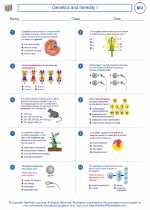
 Worksheet/Answer key
Worksheet/Answer key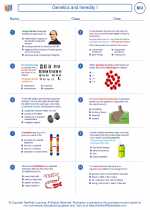
 Worksheet/Answer key
Worksheet/Answer key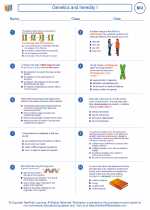
 Worksheet/Answer key
Worksheet/Answer key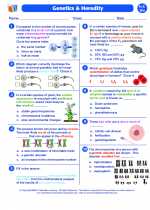
 Vocabulary/Answer key
Vocabulary/Answer key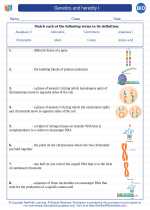
 Vocabulary/Answer key
Vocabulary/Answer key
 Vocabulary/Answer key
Vocabulary/Answer key
 Vocabulary/Answer key
Vocabulary/Answer key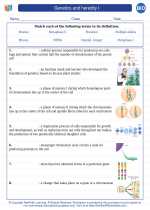
 Vocabulary/Answer key
Vocabulary/Answer key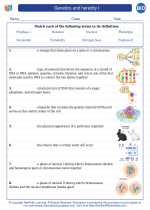
 Vocabulary/Answer key
Vocabulary/Answer key
 Vocabulary/Answer key
Vocabulary/Answer key
